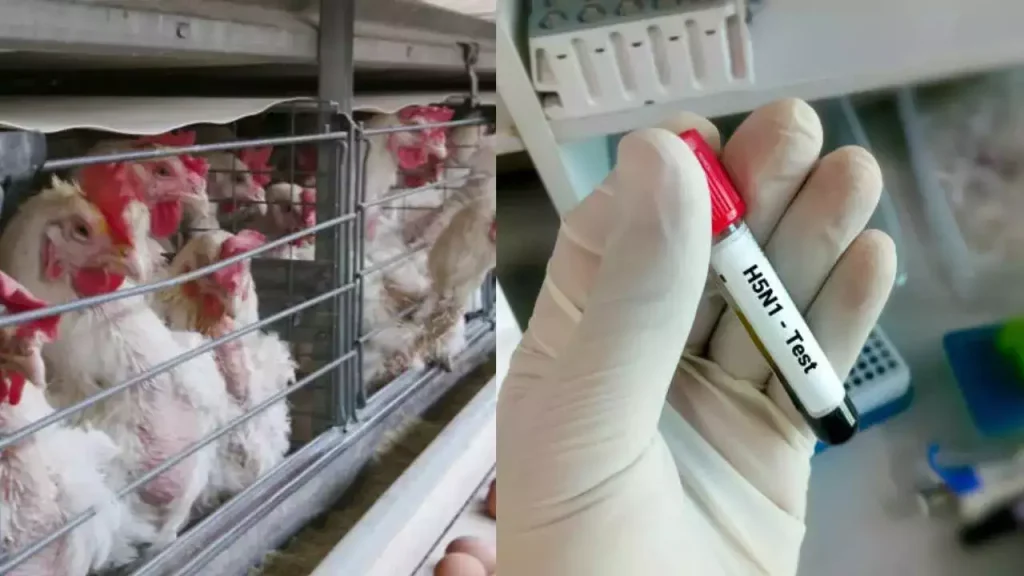For the first time, a case of Highly Pathogenic Avian Influenza (HPAI) has been detected in Georgia’s commercial poultry sector. Confirmed by the Georgia Department of Agriculture (GDA) and the U.S. Department of Agriculture’s Animal and Plant Health Inspection Service (APHIS), the case involves the H5N1 strain, which is highly contagious among birds.
This discovery, in Elbert County, marks the fifth time HPAI has been detected in Georgia since the outbreak began in 2022. However, it is the first case impacting a commercial poultry operation, raising significant concerns for the state’s poultry industry.
A Major Threat to Georgia’s Poultry Industry
Poultry is Georgia’s largest agricultural industry, contributing billions of dollars annually to the state’s economy and supporting thousands of jobs. The detection of HPAI in a commercial poultry facility could have serious consequences, not only for the businesses involved but also for the broader agricultural sector.
State Agriculture Commissioner Tyler Harper emphasized the severity of the situation in a statement:
“This is a serious threat to Georgia’s number one industry and the livelihoods of thousands of Georgians who make their living in our state’s poultry industry. We are working around the clock to mitigate any further spread of the disease and ensure that normal poultry activities in Georgia can resume as quickly as possible.”
The outbreak has already prompted significant action from state and federal officials to prevent the virus from spreading further.
Measures Taken to Contain the Outbreak
To curb the spread of HPAI, Georgia officials have suspended all poultry-related events, including exhibits, shows, swaps, meets, and sales. This precautionary measure will remain in effect until further notice.
In addition to these restrictions, the affected facility in Elbert County has been quarantined, and the birds have been euthanized to prevent further transmission. Biosecurity measures are being enforced across the state, with poultry farmers urged to follow strict hygiene protocols.
Backyard Flocks Also Impacted
Just a week before the commercial case in Elbert County, the virus was found in a backyard flock in Clayton County, consisting of 13 chickens and ducks. While backyard flocks are generally smaller, they can still serve as a reservoir for the virus, potentially threatening larger operations if the disease spreads.
Backyard poultry owners are being advised to monitor their birds closely for signs of illness, such as lethargy, reduced appetite, or sudden death.
Understanding HPAI and Its Risks
Highly Pathogenic Avian Influenza, or bird flu, is caused by strains of the influenza virus that primarily affect birds but can occasionally infect other animals, including humans. The H5N1 strain is particularly concerning because of its high mortality rate among birds and its potential to mutate into forms that could pose a greater risk to humans.
Currently, there is no evidence of HPAI spreading to humans in Georgia. The Centers for Disease Control and Prevention (CDC) has stated that the risk to public health remains low, but officials are closely monitoring the situation.
The Economic Impact of HPAI
The outbreak poses a dual threat: immediate losses to poultry producers and long-term economic repercussions for Georgia’s agricultural sector. When an HPAI case is confirmed, affected flocks must be culled, leading to significant financial losses for farmers. Additionally, restrictions on the movement of poultry and poultry products can disrupt supply chains and increase costs for consumers.
The poultry industry in Georgia generates billions annually and provides employment to thousands. Any prolonged disruption could have ripple effects on the state’s economy.
What Poultry Farmers and Owners Should Do
Officials are urging all poultry owners, whether they manage large commercial operations or small backyard flocks, to remain vigilant and take preventive measures.
Here are some recommendations:
- Enhance Biosecurity: Limit access to poultry facilities and avoid contact with wild birds.
- Monitor Flocks Closely: Watch for symptoms like unusual behavior, reduced egg production, or sudden deaths.
- Report Suspicious Cases: Any signs of illness should be reported immediately to local agricultural authorities.
- Avoid Sharing Equipment: Sharing tools or equipment between farms can spread the virus.
By taking these precautions, poultry owners can help reduce the risk of further outbreaks.
Looking Ahead
The discovery of HPAI in a commercial poultry facility underscores the importance of vigilance and preparedness in managing avian diseases. While state and federal officials work tirelessly to contain the outbreak, the incident highlights the need for ongoing research and investment in disease prevention.
As Georgia’s top agricultural industry, poultry production is a cornerstone of the state’s economy. Protecting this vital sector is essential for the livelihoods of thousands of residents and the continued stability of the food supply chain.
Disclaimer – Our editorial team has thoroughly fact-checked this article to ensure its accuracy and eliminate any potential misinformation. We are dedicated to upholding the highest standards of integrity in our content.





More Stories
Bird Flu in Georgia: First Commercial Case Sparks Concerns for State’s Economy
Bird Flu in Georgia: First Commercial Case Sparks Concerns for State’s Economy
Bird Flu in Georgia: First Commercial Case Sparks Concerns for State’s Economy